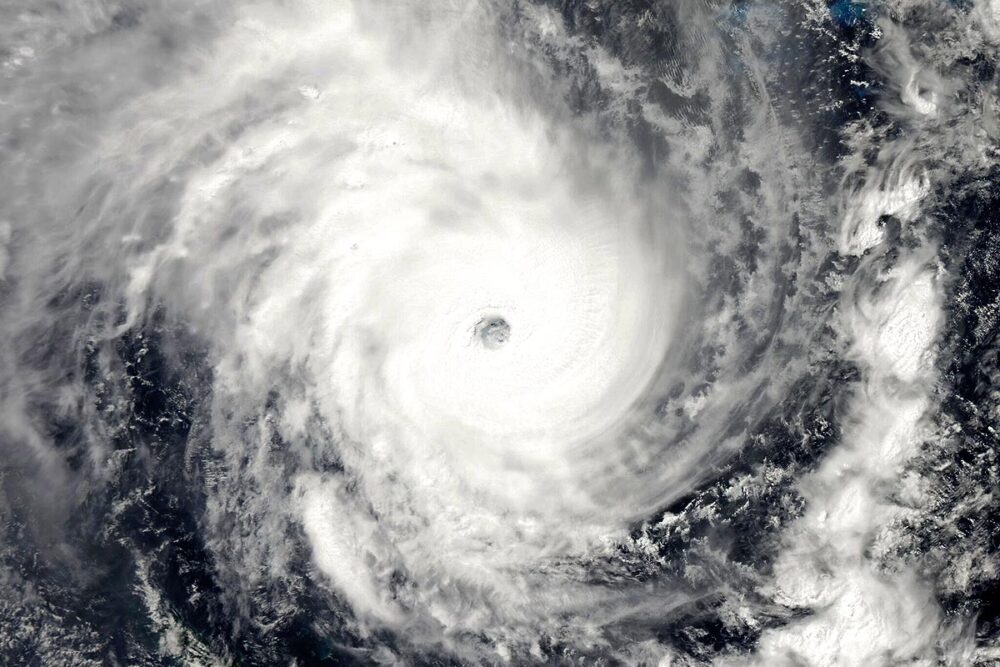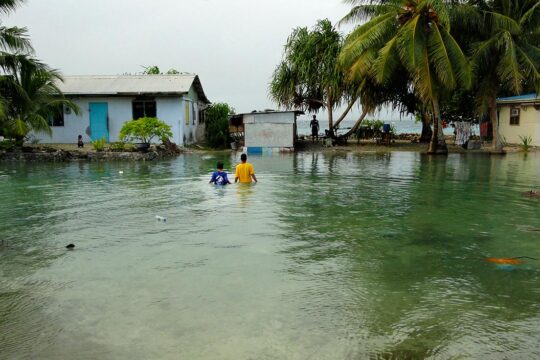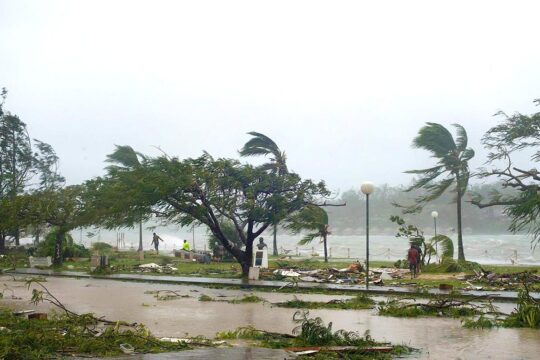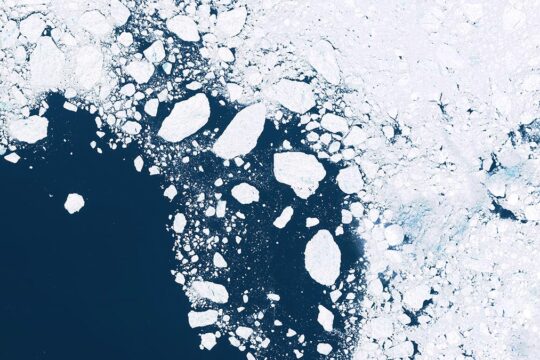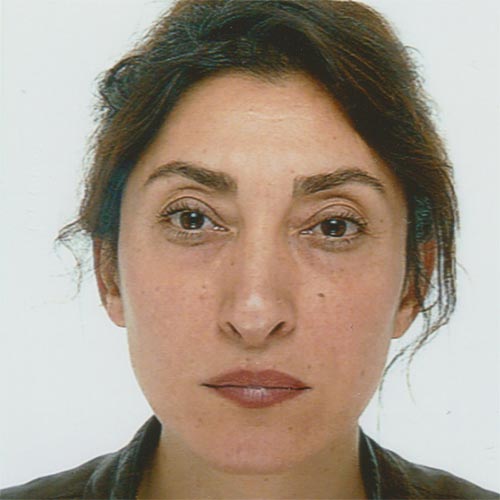“The commitments made in Baku — the dollar amounts pledged and the emissions reductions promised — are not enough. They were never going to be enough. And even then, based on our experience with such pledges in the past, we know they will not be fulfilled.” This bitter assessment of the 29th Climate Conference (COP29) is made by Ralph Regenvanu, special envoy for climate change and environment for the Republic of Vanuatu, a Melanesian archipelago and one of states most affected by climate change in the world.
His view was shared by many countries of the Global South at the end of COP29. On 22 November in Baku, Azerbaijan, the conference concluded with a commitment by the countries present to contribute $300 billion a year to help developing countries adapt to climate change by 2035. This is three times the current figure of $100 billion a year, but well short of the $1,300 billion a year requested by the Africa group at the COP, or the $1,000 billion a year in public and private money deemed necessary by the group of experts commissioned by the UN. “This has been the most horrendous climate negotiations in years due to the bad faith of developed countries,” says Tasneem Essop, executive director of Climate Action Network, a global network of environmental NGOs, who calls the negotiations a “betrayal in Baku”.
The conference was a major disappointment for a number of countries of the global South, some of which had already expressed their refusal to return to the negotiating table even before this COP was held. Like Papua New Guinea, whose minister of Foreign affairs, Justin Tkatchenko, described the Baku conference as a “complete waste of time”. “The UN negotiations are not going fast enough. We have to be there. I am afraid if we're not at the [negotiating] table, we will be on the menu,” admits Regenvanu. “The frustration that is felt is the very reason why we are taking this course of action” before the International Court of Justice (ICJ), he adds.
For states like Vanuatu, all efforts are now focused on a single institution: the Court in The Hague, which is asked to issue an “advisory opinion” on the “obligations” incumbent on states responsible for climate change and their “legal consequences”. “This includes obligations to finance adaptation and mitigation in vulnerable countries and to address loss and damage. It could help close the glaring gaps in climate finance that COP29 once again left unresolved,” says the special envoy of Vanuatu, whose state initiated this legal battle.
Vanuatu in the front line at the ICJ
According to the October 2024 report from the United Nations Environmental Programme, global greenhouse gas emissions continued to increase in 2023. The G20 countries, excluding the African Union, are responsible for 77% of all emissions. In comparison, the 47 least developed countries combined were responsible for just 3%. Vanuatu contributes only 0.02% of global greenhouse gas emissions, yet suffers disproportionately from climate impact. “For decades, Pacific Island States have experienced devastating impacts of climate change, including increasingly severe cyclones, rising sea levels and land degradation,” says Regenvanu. “We are on the frontlines of climate change impacts. We are witnessing the destruction of our lands and livelihoods, our culture, and our human rights. We are resilient people, but resilience is not enough.”
In 2019, a group of law students from the University of the South Pacific in Fiji launched a campaign to urge Pacific Island governments to go to court at the ICJ. “Climate change for us is not a distant threat. It is reshaping our lives right now. Our islands are at risk, our communities face disruptive change at a rate and scale that generations before us have not known,” says Vishal Prasad, campaign director of the Pacific Islands Students Fighting Climate Change (PISFCC).
The government of Vanuatu decided to respond to this request and, with the support of a coalition of countries, drafted a resolution presented to the UN General Assembly to bring the case before the Court. For Vanuatu, this is “a pivotal moment in our journey to establish a stronger framework of accountability, one that sets clear international legal obligations for climate action”.
“The biggest case in human history”
On 29 March 2023, the UN General Assembly adopted a resolution that was described as a “historic” step forward by NGOs and many of the 130 co-sponsors of the text. In this resolution, the Assembly asked the ICJ to issue an advisory opinion on two main questions: “What are the obligations of States under international law to ensure the protection of the climate system and other parts of the environment from anthropogenic emissions of greenhouse gases for States and for present and future generations?”; and “what are the legal consequences under these obligations for States where they, by their acts and omissions, have caused significant harm to the climate system and other parts of the environment?”
These two questions call on the Court to respond to the damage suffered both by States – in particular small island developing States, “specially affected” or “particularly vulnerable” – and by “peoples and individuals of the present and future generations affected by the adverse effects of climate change”.
The request for an advisory opinion was transmitted to the Court by UN Secretary-General António Guterres on 12 April 2023. Since then, a total of 91 written statements and 62 additional written comments have been filed in the Court’s registry. “We have seen strong backing from nations across Latin America, Africa, Europe, and Asia. This isn’t simply about island nations — it is about all countries. This broad coalition sends a powerful message, and that is, the destruction from climate change violates fundamental principles of international law,” says Cristelle Pratt, deputy Secretary general of the Organisation of African Caribbean and Pacific states (OACPS), which represents 79 countries, “all vulnerable”, and will be speaking before the Court.
Starting on 2 December 2024, the ICJ will begin hearing 94 nations and 12 inter-governmental organisations, including the European Union and the Organization of Petroleum Exporting Countries (OPEC). The hearings will last two weeks. “In terms of participation, we can safely say that this is the biggest case in human history,” says Margaretha Wewerinke-Singh, legal counsel for Vanuatu’s ICJ case and international lawyer at Blue Ocean Law. “The level of participation is unprecedented, throwing into stark relief the urgency scale and devastating impacts of the climate crisis and the need for collective clarity on some of the most critical legal issues of our generation,” says Joie Chowdhury, a lawyer with the NGO Center for International Environmental Law (CIEL).
The lawyers are counting in particular on the human aspect of the situations and damages suffered by the populations to convince the Court. “In multilateral fora or climate litigation, it becomes all about carbon emissions, targets and budgets”, says Chowdhury. “However, these hearings allow the human element. For example, in the Chagos case, there was a witness who spoke, and it set the way the case was being discussed and advanced on a completely different course. It changed the very atmosphere of the courtroom.”
Legal obligations beyond the Paris Agreement
The Paris Agreement, signed by 196 states at COP21 in 2015, set out the goals and the roadmap for mitigating and adapting to climate change. Some countries, mainly historical polluters and a few fossil fuel dependent economies, advocate for the Paris Agreement to be considered as the only international law relevant to climate change. “We may look at the Paris agreement and we may conclude that it lacks concrete emission reduction obligations for states : the nationally determined contributions, or pledges that states submit under the Paris agreement, are voluntary,” says Wewerinke-Singh. “We are not discussing future risks or theoretical threats. This is not just about future commitments. It is about addressing current violations and ensuring justice for those whose rights are being breached today.”
Voluntarism is therefore no longer enough for the vast majority of states, which point to other legal obligations, detailed in existing treaties and charters and listed in the UN General Assembly resolution. These include the Charter of the United Nations, the Universal Declaration of Human Rights, the Convention on the Rights of the Child, the United Nations Convention on the Law of the Sea, the Vienna Convention for the Protection of the Ozone Layer, the Convention on Biological Diversity, as well as the principles and obligations of customary international law. “It neither starts nor ends with the COPs and the Paris agreement”, says Chowdhury, who hopes for “a very robust opinion” from the ICJ “sometime next year”.
Meeting with IPCC scientists
On 26 November 2024, the members of the Court met with a group of past and present authors of the reports of the Intergovernmental Panel on Climate Change (IPCC), to “enhance the Court’s understanding of the key scientific findings which the IPCC has delivered through its periodic assessment reports covering the scientific basis, impacts and future risks of climate change, and options for adaptation and mitigation”.
The meeting took place ahead of the Court’s hearings, which begin on 2 December and include statements from dozens of countries, including Vanuatu, South Africa, Australia, Bangladesh, China, Burkina Faso, the United States, the Solomon and Marshall Islands, France, Brazil and Cameroon. The ICJ will conclude its hearings on 13 December with several entities representing Pacific countries, as well as the EU, OPEC, the World Health Organisation and the International Union for Conservation of Nature.
“Advisory proceedings are timely and much needed to remind states that we cannot stay within the realm of empty pledges, that there are existing legal obligations to act ambitiously on the climate crisis,” says Chowdhury. “I’ve been at COPs, and often what we see is that they seem to start negotiating from first principles as if existing law does not exist, and at least that would not be the case anymore. You would be able to point that ‘look, this is an authoritative interpretation of binding law by the ICJ, this matter has been discussed, and we cannot just bring it back to the table and pretend that this does not exist’, and this can help break the deadlock that we’re seeing on some very critical issues.”
Besides facilitating climate negotiations, the advisory opinion could also serve as a precedent, Regenvanu says. “There must be thousands of litigation cases all over the world, from the lowest courts to the highest courts. This is a precedent, a legal authority, that will help all cases.”
While ICJ opinions are not binding, they do carry legal and moral weight, often taken into account by national courts. The lawyers admit, however, that there are difficulties in dealing with states such as China, who never accepted the compulsory jurisdiction of the Court, or the United States who withdrew from it. But “this does not completely cut off their exposure from the court’s jurisdiction”, assures Chowdhury, who describes the future advisory opinion as a new “legal tool” for obtaining justice. For Regenvanu, “it doesn’t really matter”: “the outcome will be applicable to them as it is to other states.”
After the disappointment of COP29, the hopes of micro-States and countries in the South faced with climate change therefore lie in this advisory opinion from the ICJ and in its ability to respond to them in a clear and decisive manner. For Regenvanu, it is “an opportunity to clarify what nations owe to each other and to the generations yet to come, it's also an opportunity to move forward with moral clarity,” he says. “The inability of the Global North to make a dent in the climate crisis – much less derail it – is a global tragedy. We need justice and we need it urgently.”


